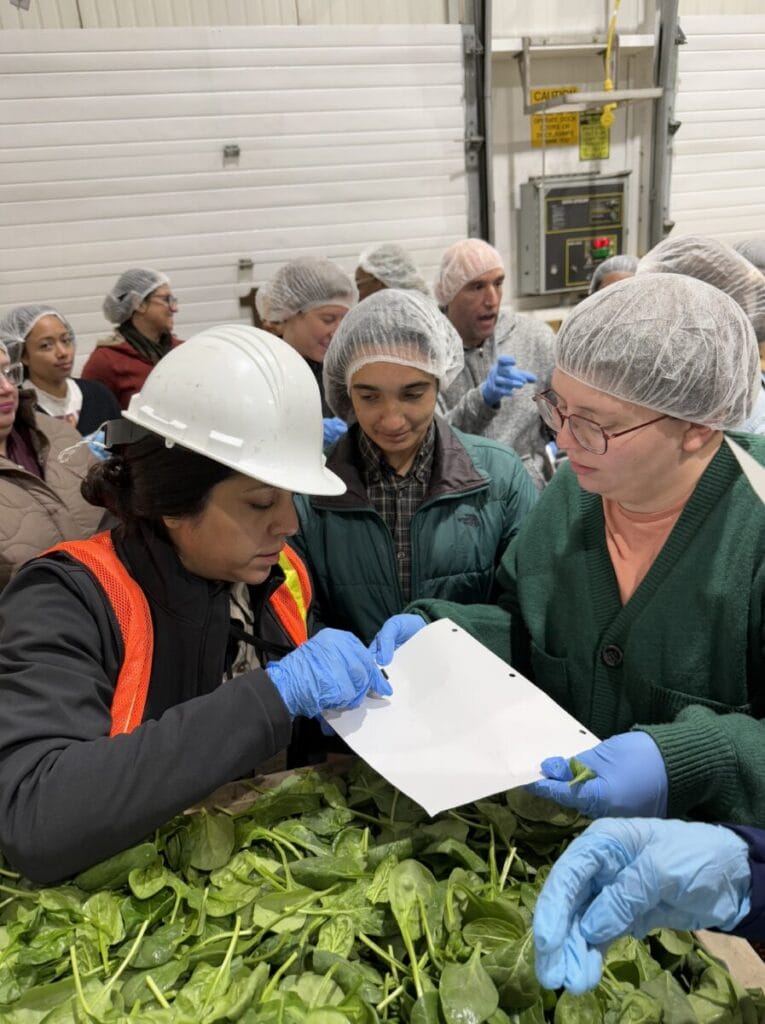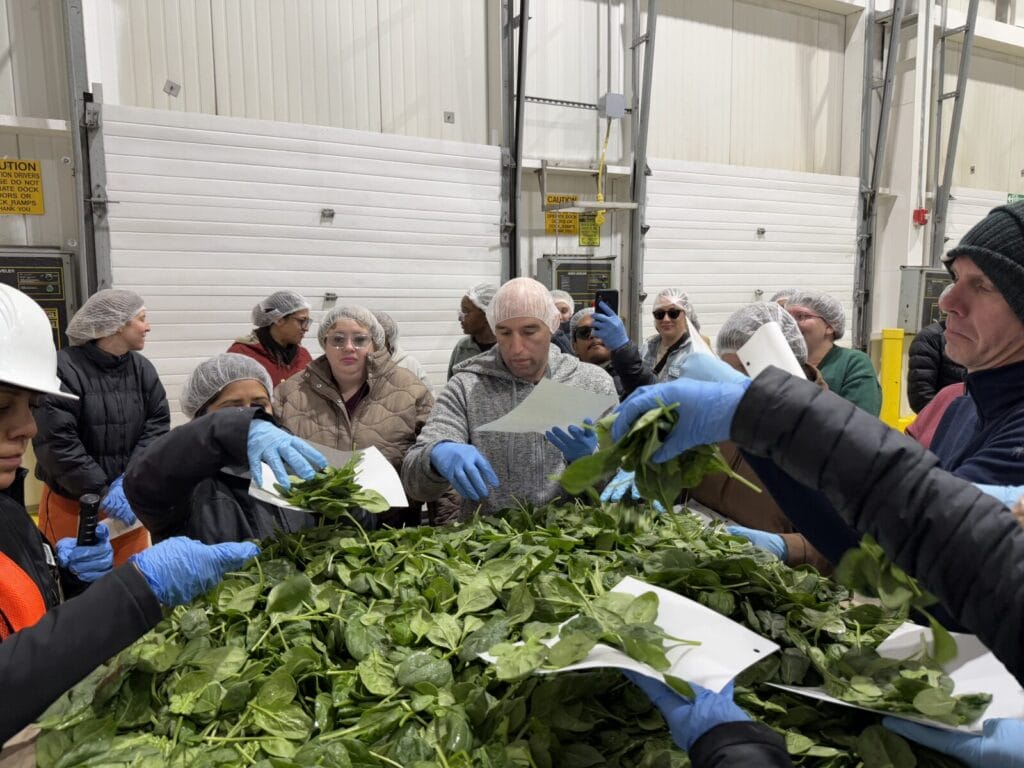By Valerie Bednarski, ASU sustainable food systems graduate student

In the intricate web of our food system, there’s a quiet but essential group ensuring our food’s safety, quality, and availability. Enter the Plant Protection and Quarantine (PPQ) program of APHIS (Animal and Plant Health Inspection Service), where officers like Melanie Fisher Galvan are on the frontlines of safeguarding agriculture from invasive pests and diseases. Their work has profound implications for food security, international trade, and climate resilience.
In an era of global trade and climate change, agriculture is under constant threat from invasive pests and pathogens. While international trade brings the benefit of year-round access to produce, it also opens pathways for non-native species that lack natural predators, wreaking havoc on ecosystems and crops. Pests can hitch a ride on produce as it gets transported across the world. They can hide deep in the leaves of cabbage or even get stuck to the bottom of peoples’ shoes. This reality underscores the critical role of APHIS in mitigating these risks and maintaining the balance of our food system.
In agriculture, the use of pesticides plays a critical role in preventing crop damage caused by pests that might impact crop yields. Pesticides can also have negative impacts on humans, beneficial bugs, and the environment. There is also increasing demand for organic produce which relies on the use of organic pesticides, integrated pest management, and other holistic practices. All these factors not only play a role in protecting yields, they also play a role in preventing pests from crossing boarders when products get sold and shipped. This dual threat underscores the importance of robust pest management practices. Pest control is not only an issue on the farm but can also be a threat to national security.
Preventing invasive species is not just an environmental or agricultural issue, it’s an economic imperative. Prevention of these pests costs far less than managing full-blown outbreaks. Simple procedures to check produce for pests can take a few minutes to a few hours. These checks can save the agriculture industry millions of dollars that would be needed to deal with an outbreak. Consider the four invasive fruit flies that got into the

U.S. this year alone. Each had the potential to disrupt supply chains, increase costs for consumers, and put local farms at risk. Few may realize that the pinhead size flies can be a threat to national food security! Pest control in agriculture is vital not only for increasing crop productivity, but also for environmental safekeeping.
One of the key tools in APHIS’s arsenal is the Phytosanitary Certificate Issuance and Tracking System (PCIT), which facilitates the export of agricultural products. Melanie took us to a vegetable distribution center and showed us how to inspect produce for export. We examined cabbage and arugula for pests. This process ensures that international commerce doesn’t come at the expense of ecological security. Similar process is conducted while importing produce to the US as well.
Moreover, advancements in technology have significantly improved pest identification. Previously, identifying a pest might have required mailing specimens to labs, taking a few days and therefore delaying trade. Now, APHIS uses high-resolution photography to share with experts, enabling same-day results. These innovations make inspections more efficient, reducing delays for exporters. This raises an intriguing question: How can AI and other emerging technologies streamline these processes? From automating pest detection to enhancing data analysis, there’s vast potential for innovation.
As climate change reshapes ecosystems, it’s likely to intensify the spread of invasive species. Warmer temperatures and shifting weather patterns create new habitats for pests, compounding the challenges APHIS faces. Also, as labor prices increase in the
US, agricultural imports also increase from Mexico and South America because the cost to produce fruits and vegetables is lower. The agency’s work is thus not just about today’s threats, it’s about building resilience for tomorrow’s food system.
The work of APHIS officers like Melanie Fisher Galvan is vital. They are the unsung heroes preventing the next agricultural crisis, ensuring that farmers can grow, consumers can eat, and ecosystems can thrive. Their efforts reinforce one of the main themes of the Sustainable Food Systems program - that the food on our plates is the result of a complex, interdependent system that demands constant vigilance and innovation.
This blog is part of a series from the Swette Center's annual Arizona Food and Farm Immersion, a required course in their two graduate programs. Students tour the state, meeting with farmers, ranchers, entrepreneurs, government staff, and non-profit leaders.